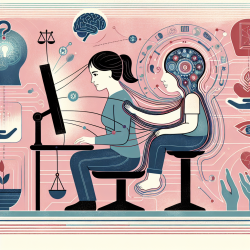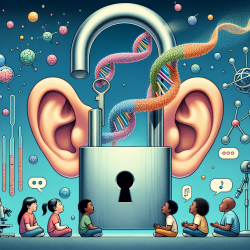Dehumanization, the process of perceiving others as less than human, has profound implications on empathy and human rights. The recent research article, "A hypothetical neurological association between dehumanization and human rights abuses," by Murrow and Murrow (2015), delves into the neural mechanisms underlying this phenomenon and its effects on empathy. This blog aims to provide speech-language pathologists (SLPs) with insights on how to integrate these findings into their practice, especially in the context of online therapy for children.
The Neurological Basis of Dehumanization
The study suggests that dehumanization dampens the neural mechanisms responsible for pain empathy. When individuals or groups are perceived as less human, the neural circuits that activate empathy are less responsive. This automatic reduction in empathy can lead to a denial of human rights and increased violence against the dehumanized group.
Implications for SLPs in Online Therapy
Understanding the neurological basis of dehumanization can help SLPs improve their practice in several ways:
- Building Empathy: SLPs can use this knowledge to foster empathy in their clients. Activities that promote perspective-taking and understanding of others' emotions can help counteract dehumanizing tendencies.
- Inclusive Language: Using inclusive and respectful language can mitigate implicit biases. SLPs should be mindful of their language choices, especially when working with diverse populations.
- Training and Awareness: Continuous professional development on the impacts of dehumanization and implicit biases can enhance SLPs' effectiveness in online therapy settings.
Encouraging Further Research
The findings from Murrow and Murrow's research highlight the need for further exploration into how dehumanization affects empathy and behavior. SLPs can contribute to this field by:
- Conducting Studies: Engaging in or supporting research that examines the impact of empathy-building interventions in online therapy.
- Collaborating with Neuroscientists: Partnering with neuroscientists to develop evidence-based practices that address the neural mechanisms of empathy.
Conclusion
The neurological insights into dehumanization provide valuable guidance for SLPs working in online therapy. By fostering empathy, using inclusive language, and staying informed about the latest research, SLPs can create positive outcomes for children and contribute to a more empathetic society.To read the original research paper, please follow this link:
A hypothetical neurological association between dehumanization and human rights abuses.










